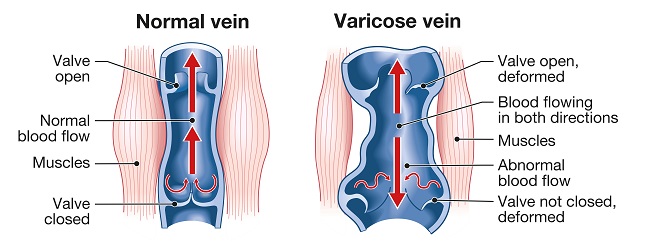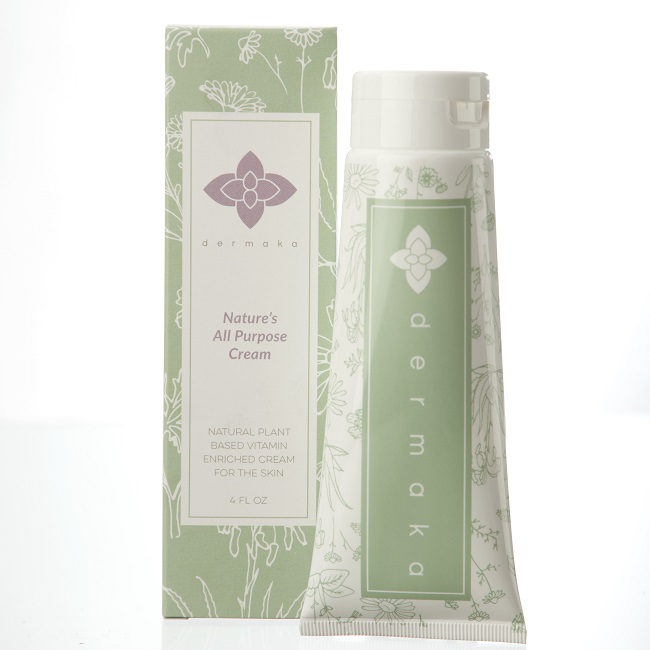When it comes to dealing with varicose veins, there are a lot of remedies and treatments on offer. As you probably know, a cursory Google search for ‘varicose vein treatment’ will present you with dozens of articles covering everything from exercises to creams to surgery. The important thing is differentiating between what constitutes treatment and what constitutes a remedy. So, without further ado, let’s get into the truth about varicose vein supplements and creams, including their benefits and shortfalls.
But first, a refresher.

Illustration showing varicose veins and normal veins
Varicose veins are a medical condition in which your vein valves (the tiny gateways in your veins responsible for stopping the backward flow of blood) malfunction. As the valves can no longer stop blood from flowing backwards, some of it begins to pool in the vein. Before long, your vein walls expand, turning into bulging, twisting, dark blue varicose veins.
Varicose vein creams
Now, considering that the bulk of your venous system runs deep under the skin (barring venules that link to skin cells and thus are closer to the skin surface), varicose vein creams won’t reach them. Their effects are quite literally skin-deep.
Indeed, varicose vein creams like Varesil are designed to minimise the appearance of varicose veins by tightening the skin and reducing swelling. They do not address the underlying issue of faulty valves.
Meanwhile, creams like Dermaka simply aid in post-op recovery. With its antiseptic, anti-inflammatory, and vitamin-enriched formula, it will help reduce any redness and swelling you get around the treatment site and help avoid infection at the incision site.

Dermaka varicose vein cream, which is designed to help minimise redness and swelling post-treatment
Varicose vein supplements
Varicose vein supplements can similarly help with symptom management. Vitamins D, C, E, and K, for instance, are great for the overall health of your vascular system. They’ll keep your vein walls strong, help them relax and contract, and boost your circulation.
Keep in mind, however, that your body will automatically expel any vitamins it doesn’t need. So, if all your vitamin levels are optimal and your diet is already rich in them, it’s unlikely that supplements will do much for you.
Additionally, we want to reiterate that varicose vein supplements are a remedy, not a treatment. They will not be much more effective than other remedies like walking, wearing compression stockings, and elevating the affected area. And they will not give you the same results as medical treatment.
Medical treatments
On that note, let’s discuss treatments. We know that for a condition as uncomfortable and often unsightly as varicose veins, you want a quick and easy solution. But unfortunately, medical intervention is currently the only way to treat them.
On the upside, thanks to recent technological innovations, surgery is no longer the only option. Methods like Endovenous Laser Ablation, Radiofrequency Ablation, Medical Superglue, and ClariVein are all minimally invasive and highly effective.
What these treatments do is seal off the problem vein from the rest of your vascular system. EVLA and RFA do this through heat energy, ClariVein through sclerosant, and Superglue through cyanoacrylate.
To sum up
Varicose vein supplements and creams can help relieve some symptoms of varicose veins and assist with treatment recovery. However, depending on their ingredients and your condition, they won’t be better than the symptom relief provided by compression socks, gentle exercise, and elevation. And most importantly, they are not a substitute for medical treatment.
So, if you want to get rid of your varicose veins, call us on 0420 102 637 or book online.

